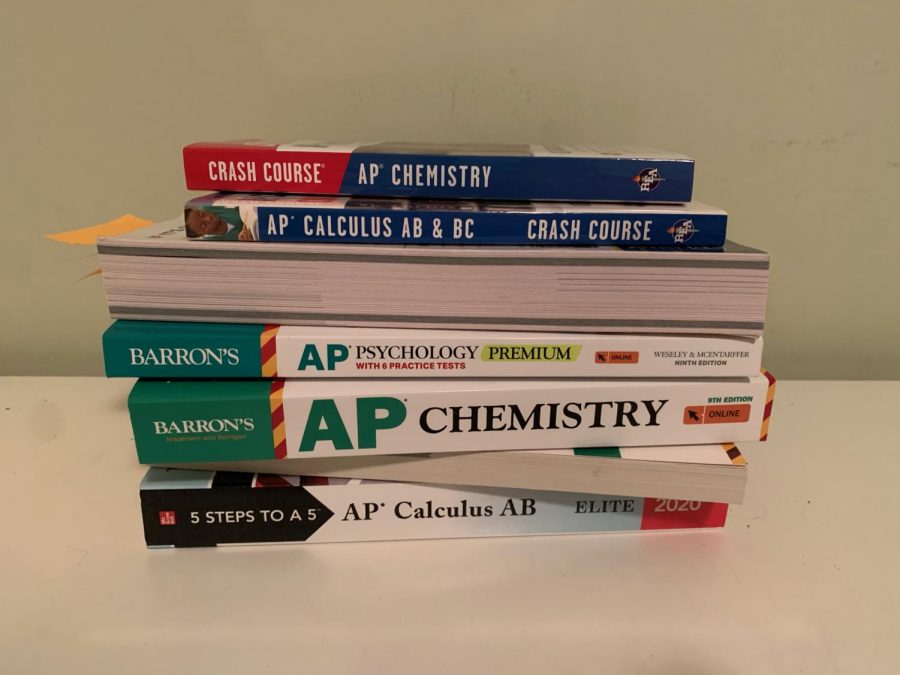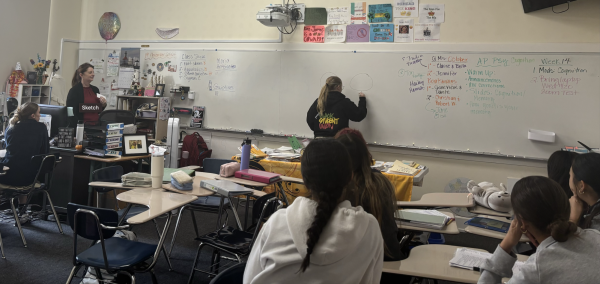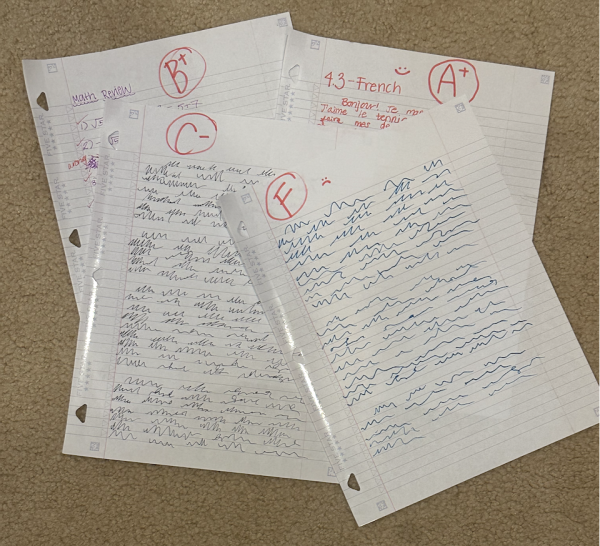Why AP exam content should be reduced this year
The Catalyst / Peyton Daley
Despite the pandemic, AP exams will return to a typical year’s content this spring.
The College Board recently announced that all AP Exams, with the exception of AP Physics 1, will cover the full course content.
The AP Physics 1 exam will test students on Units 1-8, but leave off 8-10, as most colleges agree that these units are unnecessary seeing as they are covered again in AP Physics 2. However, that still leaves 37 AP Exams that remain unchanged from a typical year, despite the drastically different circumstances that students find themselves in.
Last March, when COVID-19 caused schools across the country to turn remote, the College Board redesigned their tests for AP students to accommodate for lost learning. Those tests from the spring of 2020 were 45 minutes, open-note, and consisted of a mere two free-response questions, eliminating the entire multiple-choice section.
This year’s AP students have had an equally challenging experience. Although some schools are beginning to reopen, many remain completely or partially online. Eight states, including California, have statewide or regional orders to remain closed, affecting around 20% of students nationwide (EdWeek). Even in states without executive orders, the majority of schools are just beginning to reopen, meaning half the school year was online.
Online learning is just not the same as being in a classroom. Although it is the best choice during a pandemic to prioritize the community’s health, trying to learn over Zoom with spotty WiFi and noisy neighbors is not always easy. At NDB, students also have four days rather than five in a school week, making it harder to get through a typical year’s content.
So, why are AP students now being held to the standards of a normal year, when this year has been far from normal? It’s no surprise that the College Board does not want a repeat of last year, since the tests were widely considered to be insufficient in measuring knowledge and the online format caused many internet issues. However, they have now had almost an entire year to plan for this year’s tests, knowing the circumstances that many schools find themselves in.
AP students should not be expected to teach themselves the content that they are losing due to reduced school hours, and distance learning should not be expected to provide the same educational resources for students as in-person classes would. Instead, the College Board should adjust to these new restrictions and reimagine their tests depending on the curriculum AP classes could cover this year, not years past.

Peyton Daley is a senior and this is her third year as a Catalyst writer. She served as Arts & Life Editor her sophomore year and Managing Editor her...







